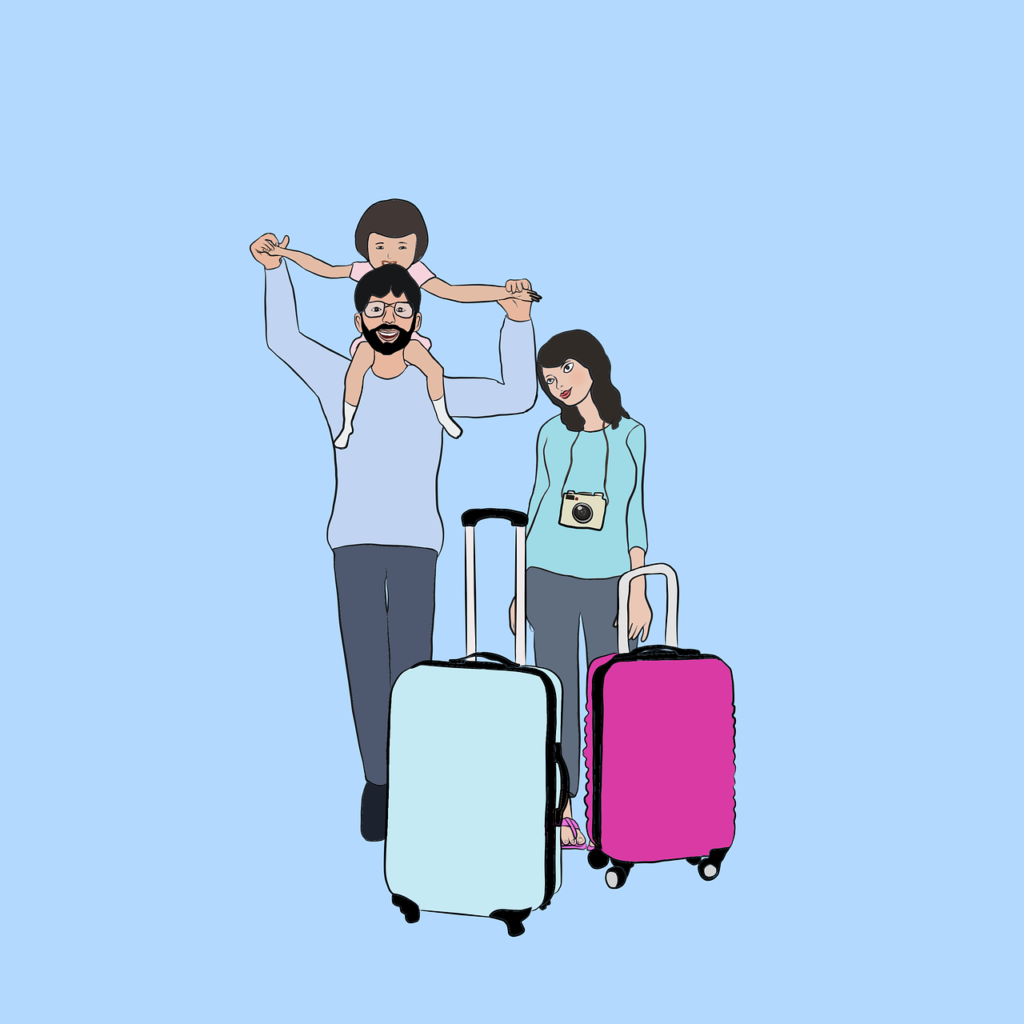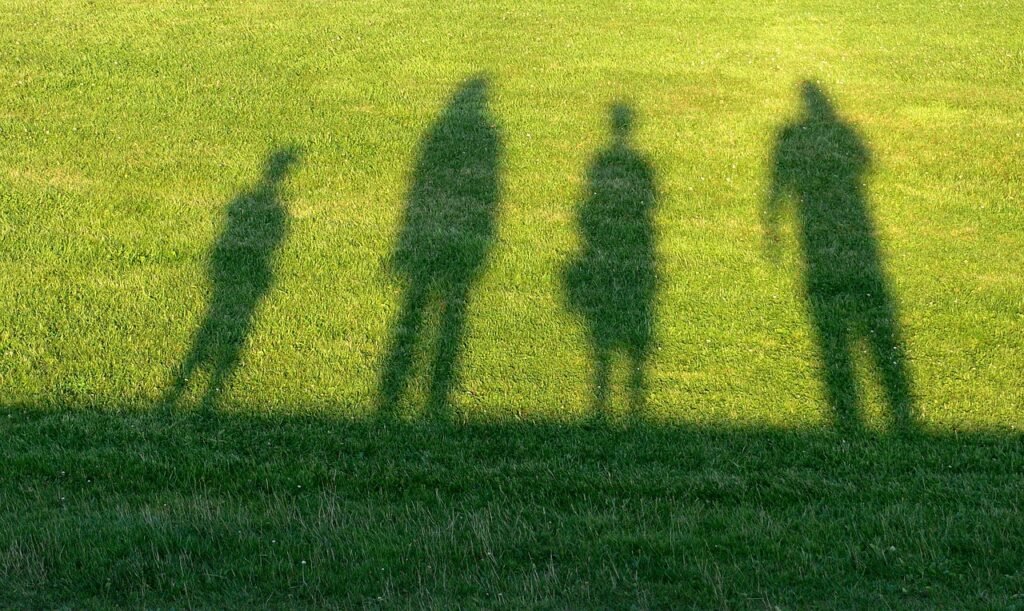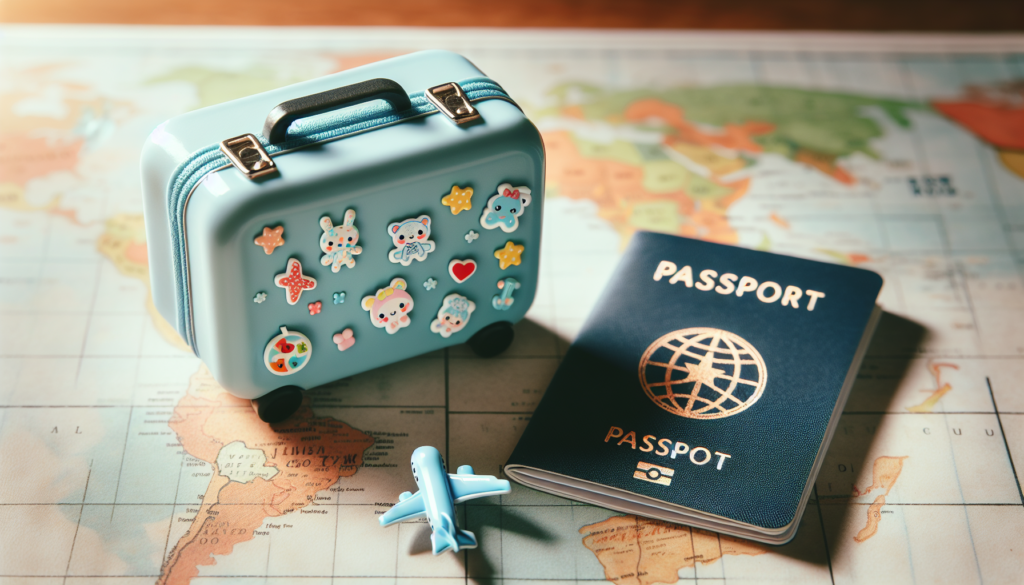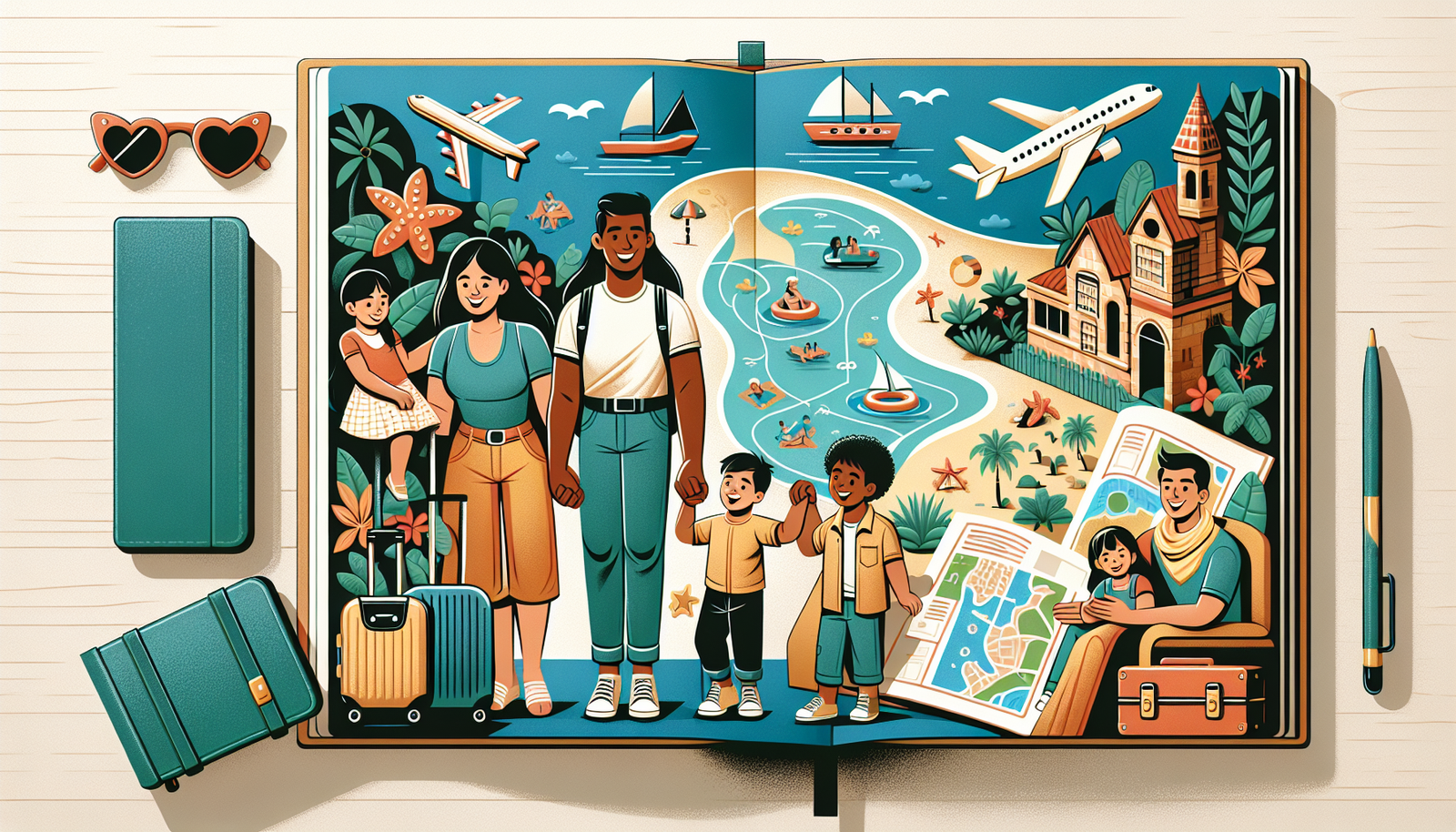
Parenting Tips for Traveling with a Baby
Struggling to navigate the world of travel with your little one? Fret not, dear readers, for we have delved into the world of parenting and travel to bring you the ultimate guide for jet-setting with a baby. Whether you’re embarking on a cross-country road trip or planning a family vacation, we’ve got you covered with our top tips and expert advice. Say goodbye to overwhelming travel experiences and hello to stress-free adventures with your little bundle of joy. From packing essentials to survival strategies, we’ll ensure that your next trip with your baby is smooth sailing from start to finish. So sit back, relax, and let us arm you with the knowledge and confidence to take on the world of parenting and travel like a pro.

This image is property of pixabay.com.
Preparing for the Trip
Traveling with a baby requires careful planning and preparation to ensure a smooth and enjoyable trip for everyone involved. Here are some essential steps to take when preparing for your journey:
Check with the Pediatrician
Before embarking on any trip, it’s important to consult with your pediatrician. They can provide valuable advice and guidance specific to your baby’s needs, such as any necessary vaccinations or medications. They can also offer recommendations on how to handle common travel challenges, such as jet lag or changes in time zones.
Pack Essential Items
Make a checklist of all the essential items your baby will need during the trip. This includes diapers, wipes, clothing, blankets, and any other personal care items they require. Remember to pack enough supplies to last for the duration of your trip, as it may be challenging to find specific brands or products while traveling.
Research Baby-Friendly Accommodations
When choosing accommodations for your trip, look for baby-friendly options. This may include hotels or resorts that offer amenities such as cribs, baby bathtubs, or on-site childcare services. Reading reviews from fellow parents can provide valuable insight into the suitability of a particular accommodation for traveling with a baby.
Plan a Flexible Itinerary
Traveling with a baby often requires flexibility as their needs and schedules can vary. While it’s great to have a general itinerary of places to visit and things to do, be prepared to make adjustments along the way. Allow ample time for rest, breaks, and unexpected detours. This will make the trip more enjoyable and less stressful for both you and your baby.
Booking Travel Arrangements
Booking the right travel arrangements is crucial when traveling with a baby. Here are some factors to consider:
Choose the Right Mode of Transportation
Decide on the mode of transportation that best suits your baby’s needs. While flying may be the fastest option, it can also be stressful for infants. Consider alternate modes such as driving or taking a train if they are more comfortable for your baby.
Consider Baby-Friendly Airlines
When flying, choose an airline that is known for being baby-friendly. Look for airlines that offer amenities such as bassinets or extra legroom for families. Checking the airline’s policy on traveling with infants and any additional fees involved is also important.
Book Direct Flights
Whenever possible, opt for direct flights to minimize the time spent traveling. Layovers and connections can be particularly challenging with a baby, as it disrupts their routine and increases the chances of exhaustion or fussiness.
Request Bulkhead Seats or Upgrades
When booking your flight, consider requesting bulkhead seats or exploring the possibility of upgrading to a higher class. These seats offer more legroom and space, making it easier to care for your baby during the flight. However, do note that availability may vary, so it’s best to book early or check with the airline directly.
Packing Tips
Packing strategically can make all the difference when traveling with a baby. Here are some essential items to include:
Pack Extra Diapers and Wipes
One of the most crucial items to pack is a sufficient supply of diapers and wipes. Babies can go through multiple diaper changes in a day, and it’s essential to have an extra stock to avoid running out while on the go. Consider packing a few more diapers than you typically use in case of unexpected delays.
Bring a Portable Changing Pad
A portable changing pad is a must-have item for traveling parents. It provides a clean and comfortable surface for diaper changes, protecting your baby from unhygienic surfaces. Look for a compact and lightweight option that can easily fit into your diaper bag or carry-on luggage.
Carry Snacks and Formula
If your baby is already on solid foods, it’s important to pack a variety of healthy snacks for them. Finger foods that are easy to eat and mess-free are ideal for travel. For formula-fed babies, bring enough pre-measured formula in individual packs or bottles. Remember to bring a sufficient supply, as it may not be readily available at your destination.
Pack Comfort Items and Familiar Toys
Bringing along your baby’s favorite comfort items and familiar toys can provide a sense of security and familiarity during the trip. This can include a special blanket, stuffed animal, or pacifier. These items can help soothe your baby during times of discomfort or unfamiliarity.
Include Baby’s Medical Kit
Having a well-stocked medical kit is essential when traveling with a baby. Include items such as infant pain relievers, a thermometer, band-aids, and any necessary prescription medications. It’s also a good idea to have a list of emergency contact numbers, including your pediatrician, easily accessible.
On the Day of Travel
The day of travel can be both exciting and stressful. Here are some tips to help make the process smoother:
Dress Baby in Comfortable Clothing
Choose loose-fitting, breathable clothing for your baby to ensure their comfort throughout the journey. Opt for layers, so you can easily adjust their clothing based on the temperature in different environments. Avoid items with complex buttons or zippers that may be difficult to manage during quick diaper changes.
Arrive Early at the Airport
To minimize stress and allow for unforeseen delays, make it a priority to arrive early at the airport. This will give you ample time to check-in, go through security, and settle your baby before boarding the flight. Arriving early also allows you to navigate the airport at a leisurely pace, rather than rushing to catch your flight.
Utilize Stroller and Baby Carrier
A stroller and baby carrier can be invaluable during travel. Use a stroller to transport your baby through the airport, as well as provide them with a comfortable place to rest or nap. A baby carrier allows you to have your hands free while keeping your baby close and secure. Ensure that your baby is comfortable and properly secured in both the stroller and carrier.
Keep Essential Items Within Reach
During the journey, it’s essential to have easy access to all the essential items you packed. Keep items such as diapers, wipes, snacks, and toys within reach, either in a diaper bag or in the seat pocket in front of you. This will make it easier to handle any unexpected needs or emergencies without having to rummage through your luggage.
Be Mindful of Security Procedures
When going through airport security, follow the guidelines for carrying liquids, gels, and baby food. These items are often subject to additional screening or restrictions. Familiarize yourself with the airport’s rules and regulations beforehand to ensure a smooth experience at security checkpoints. Be prepared to remove your baby from their carrier or stroller for screening if required.

This image is property of pixabay.com.
During the Journey
Once you’re on your way, here are some tips to keep your baby comfortable and entertained during the journey:
Stick to Baby’s Routine
As much as possible, try to stick to your baby’s usual routine while traveling. This includes feeding, napping, and bedtime schedules. Maintaining consistency can give your baby a sense of familiarity and make them feel secure in unfamiliar surroundings. However, it’s important to be flexible and make adjustments when necessary.
Keep Baby Comfortable and Entertained
During the journey, prioritize your baby’s comfort by making them cozy and providing entertainment. Use travel-friendly items such as a soft blanket or a pillow to ensure they have a comfortable place to rest. Bring along age-appropriate toys, books, or a tablet with pre-downloaded videos to keep them entertained during the trip.
Feed Baby During Takeoff and Landing
During takeoff and landing, the change in cabin pressure can cause discomfort to your baby’s ears. To alleviate this, feed your baby or offer them a pacifier to encourage swallowing. Sucking helps equalize the pressure in their ears and reduces discomfort. This can also be a comforting gesture for your baby, making the journey more pleasant for them.
Take Frequent Breaks
Long journeys can be tiring for babies, so it’s important to take frequent breaks to allow them to stretch, move around, and get some fresh air. If you’re traveling by car, plan regular rest stops where your baby can crawl or walk around for a bit. If you’re on a flight, take short walks up and down the aisle or stretch your baby’s legs while waiting for the restroom.
Ensure Proper Hydration
It’s essential to keep your baby hydrated during the journey, especially in dry cabin environments. Pack enough bottles or sippy cups filled with water or age-appropriate drinks to offer regular hydration. Breastfeeding or formula feeding on-demand can also help ensure your baby stays adequately hydrated.
Dealing with Time Zone Changes
Traveling across time zones can disrupt your baby’s sleep schedule. Here are some tips to manage the transition:
Gradually Adjust Baby’s Schedule
Before you travel, start adjusting your baby’s schedule gradually, a few days or weeks in advance. Shift their nap and bedtime by small increments, closer to the time zone of your destination. This gradual adjustment can help ease your baby into the new schedule and reduce the impact of jet lag.
Expose Baby to Natural Light
Upon arrival at your destination, expose your baby to natural light during the day. Natural light helps regulate the body’s internal clock and aids in adjusting to the new time zone. Spend time outdoors with your baby, go for walks or stroller rides, and allow them to soak in the sunlight.
Establish a Bedtime Routine
Establishing a bedtime routine can signal to your baby that it’s time to wind down and prepare for sleep. This can include activities such as a warm bath, reading a book, or singing lullabies. Consistency is key, as it helps your baby recognize the cues and signals that it’s time to sleep, regardless of their surroundings.
Keep Naps Consistent
While adjusting to a new time zone, try to keep your baby’s nap schedule as consistent as possible. This can help prevent overtiredness, which can make it more difficult for your baby to adjust to the new time zone. Allow your baby to nap at their usual times, even if it means adjusting your own activities accordingly.

This image is property of pixabay.com.
Staying Safe and Healthy
When traveling with a baby, it’s important to prioritize their health and safety. Here are some tips to keep in mind:
Practice Proper Hand Hygiene
Maintaining proper hand hygiene is crucial, especially when you’re in unfamiliar environments. Carry antibacterial wipes or hand sanitizer to clean your hands and your baby’s hands before and after meals, diaper changes, and any other interactions with potentially germy surfaces.
Avoid Unfamiliar Foods
While exploring new cuisines is often a highlight of travel, it’s essential to be cautious when introducing unfamiliar foods to your baby. Stick to well-cooked and safe food options and avoid street food or raw foods that may be more prone to contamination. If your baby has any known food allergies, be extra cautious and avoid any potential triggers.
Protect Baby from Sun Exposure
Babies have delicate skin that is more susceptible to sunburn and sun damage. Apply a broad-spectrum sunscreen with a high SPF regularly, and dress your baby in breathable, lightweight clothing that covers their arms and legs. Additionally, use a hat and sunglasses to further protect their face and eyes from the sun’s harmful rays.
Stay Updated on Vaccinations
Before traveling, ensure that your baby is up to date on all their vaccinations. Depending on your destination, there may be specific vaccine requirements or recommendations. Consult with your pediatrician about any necessary immunizations and take necessary precautions to protect your baby’s health while traveling.
Managing Sleep During Travel
Maintaining a healthy sleep routine for your baby while traveling can be challenging. Here are some tips to help manage sleep:
Choose Accommodations with Baby in Mind
When selecting accommodations, look for options that offer separate sleeping areas or suites. This can allow you to have a separate space to put your baby to sleep while still allowing you to enjoy your own evening activities. Additionally, ensure the room is quiet, dark, and comfortable, mimicking the sleep environment your baby is used to.
Create a Familiar Sleep Environment
Recreating a familiar sleep environment can help your baby feel more at ease and facilitate better sleep. Bring along items such as their favorite blanket or sleep sack, a white noise machine, or a nightlight to replicate their usual sleep routine and create a sense of familiarity.
Maintain a Bedtime Routine
Stick to your baby’s usual bedtime routine as closely as possible, even while traveling. This consistency helps signal to your baby that it’s time to wind down and prepare for sleep. Incorporate familiar activities such as reading a book or singing a lullaby to establish a sense of routine and to help your baby relax.
Use White Noise Machines or Apps
White noise machines or smartphone apps can be extremely helpful in creating a soothing sleep environment for your baby. These devices produce a constant, gentle sound that can drown out external noises and help your baby fall asleep faster and stay asleep longer. Experiment with different sounds to find the one that works best for your baby.
Be Patient and Flexible
Managing sleep while traveling can be challenging, especially when adjusting to new environments and time zones. Be patient with your baby and expect some disruptions to their usual sleep patterns. Remain flexible and adapt as needed, understanding that your baby’s sleep may not be perfect during the trip. Focus on creating a calm and comforting atmosphere to help your baby feel secure and relaxed.

Tips for Dining Out
Exploring local cuisine can be a wonderful part of travel, even with a baby in tow. Here are some tips for dining out:
Research Baby-Friendly Restaurants
Before your trip, research baby-friendly restaurants in your destination. Look for places that offer high chairs, changing facilities, and a welcoming attitude towards families with young children. Reading reviews from other parents can provide useful insights and help you make informed choices.
Bring Baby’s Eating Essentials
Pack essentials such as a bib, baby utensils, and a spill-proof cup or bottle for your baby’s meals. This will ensure you have everything you need to facilitate feeding while dining out. Additionally, consider bringing some familiar foods from home to offer your baby if local options are not suitable or available.
Opt for Early Meal Times
Choose to dine out during off-peak hours when restaurants may be less crowded and noisy. Early meal times can often be more accommodating for families with babies, as the atmosphere tends to be quieter. This can also help ensure that your baby is well-rested and not overly tired during mealtime.
Consider Baby-Led Weaning
If your baby is of the appropriate age, consider practicing baby-led weaning during your trip. This approach encourages babies to self-feed with appropriate finger foods and allows them to explore new tastes and textures. It can be an enjoyable and interactive way for your baby to experience local cuisine while you dine together.
Be Understanding and Prepared
When dining out with a baby, it’s essential to be understanding of their needs and be prepared for unexpected situations. Babies can be unpredictable, and they may become fussy or restless during a meal. Carry some small toys or books to engage your baby if they need some entertainment. Be patient and remind yourself that enjoying a meal together is the primary goal.
Handling Jet Lag
Dealing with jet lag can be challenging, particularly when traveling with a baby. Here are some tips to help manage jet lag:
Allow Time to Adjust
Give yourself and your baby some time to adjust to the new time zone. It may take a few days for your baby’s sleep patterns to align with the local time. Be patient and make necessary adjustments to your daily routine based on your baby’s cues and needs.
Encourage Outdoor Activities
Spending time outdoors, especially in the morning sunlight, can help reset your baby’s internal clock and regulate their sleep-wake cycle. Take walks, visit local parks, or engage in outdoor activities during daylight hours to help your baby adjust to the new time zone.
Keep Baby’s Sleep Schedule Consistent
While it’s natural for your baby’s sleep schedule to be temporarily disrupted due to jet lag, try to establish a consistent sleep routine as quickly as possible. This can help regulate their internal clock and promote better sleep. Stick to regular nap times and consider adjusting bedtime to align with the new time zone.
Manage Meal Times
Meal times can also play a role in helping your baby adjust to a new time zone. Offer meals or snacks at regular intervals based on the local time, even if it means adjusting the timing of your own meals. This can help establish a new routine and aid in the transition.
Be Patient and Understanding
Keep in mind that adjusting to a new time zone can be challenging for both you and your baby. Be patient and understanding with your baby if they experience difficulties with sleep or mood. Offer comfort and reassurance, and remember that it may take a few days for everyone to fully acclimate to the new time zone.
Traveling with a baby can be an incredibly rewarding experience, despite the extra considerations and preparations involved. By following these tips and taking the time to plan and prepare, you can ensure a successful and enjoyable trip for you and your little one.





